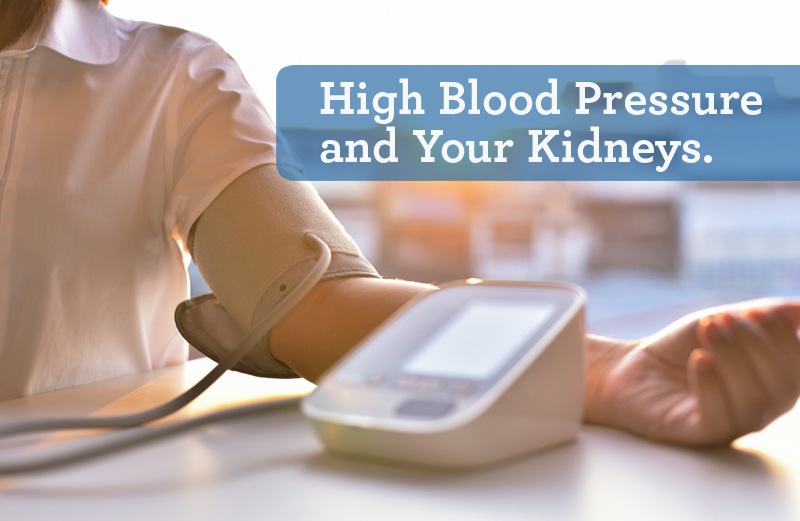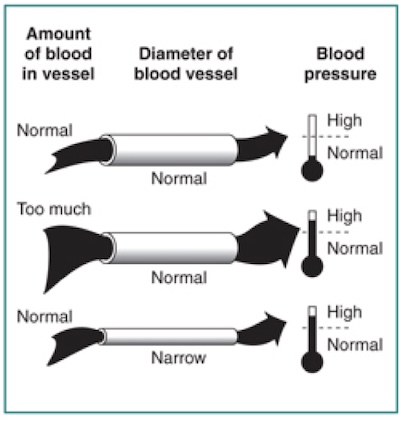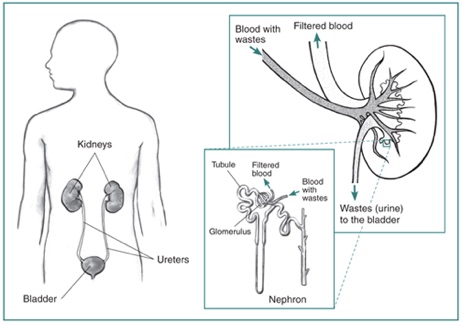March is National Kidney Month—an annual celebration to raise awareness about kidney disease. Since this year’s focus is on the link between high blood pressure and kidney disease, it’s a great time to talk about the importance of this relationship and steps you can take to keep your blood pressure in check—for both for the health of your kidneys, as well as your overall health.
Why can high blood pressure contribute to kidney disease?
High blood pressure is the second leading cause of kidney failure in the United States, after diabetes. Also referred to as hypertension, it relates to the amount of force placed on blood vessels as blood moves through the body. It can occur when there is extra fluid in the blood (which makes the volume higher than normal) or if the blood vessels are narrow, stiff, or clogged for some reason.
The link between high blood pressure and kidney disease relates to the blood flow to small filters in the kidneys, which are called nephrons. Nephrons receive blood from the body and remove waste products that are then excreted through the urine. They also retain important nutrients, which are sent back to the body via filtered blood to support overall health.
When someone has high blood pressure, it can damage the blood vessels throughout the body, including those in the kidneys. This impacts the filtering ability of the nephrons, which means they may not be able to remove wastes effectively, and may also cause the body to retain extra fluid. Since extra fluid can contribute to high blood pressure, a dangerous cycle may result.
What blood pressure and kidney function measures are important to know?
In 2017, the definitions for hypertension were changed from the previous definition of 140/90 and higher to readings of 130 mm Hg and higher for the systolic blood pressure measurement, or readings of 80 and higher for the diastolic measurement. These new guidelines from the American Heart Association and the American College of Cardiology aim to help people recognize high blood pressure much earlier, since it can be a contributor to so many serious health conditions.
Since many people who have high blood pressure don’t know it, it is important to get it checked regularly by your healthcare provider. An average based on two or more readings obtained on two or more occasions is used to diagnose hypertension.
Kidney disease is diagnosed with blood and urine tests that include:
- Glomerular Filtration Rate (GFR)—a calculation that uses the creatine level in your blood to estimate how well your kidneys are functioning. A GFR of 60 or more is in the normal range.
- Albumin level—a urine test that checks for the presence of albumin in your urine, which can be a sign of kidney damage. This can be done in two ways: A dipstick test of a sample of your urine, or a test that compares the amount of albumin with the amount of creatinine in your urine sample. This test is referred to as a urine albumin-to-creatinine ratio (UACR).
How can I lower my chance of kidney disease related to high blood pressure?
Although high blood pressure can contribute to serious conditions such as kidney disease, heart disease, and stroke—the good news is there are specific steps you can take to control hypertension:
- Take your medications as prescribed by your healthcare provider. If blood pressure-lowering medications are needed, they can help slow the development of kidney disease.
- Set your sights on reaching a healthy weight. Even a small amount of weight loss can improve blood pressure readings for someone who is overweight or obese.
- Pick healthy foods and beverages. That list should include fruits and vegetables, lean meat, whole grains, and other heart-healthy foods.
- Quit smoking. Smoking is linked to a variety of serious health conditions, so if you smoke, it’s important to find a way to stop altogether.
- Sleep well. Try to get 7 to 8 hours of sleep per night.
- Get active and manage stress. Embrace stress-reducing activities that are a fit for you—including those which help you get at least 30 minutes or more of physical activity each day.
If you would like to learn more about the link between high blood pressure and kidney disease—or need support in achieving your healthy lifestyle goals—we at Western Michigan Urological Associates want to work with you to find the best option for you and your family. Contact us today.
Image Sources:
National Institutes of Health (NIH): National Institute of Diabetes and Digestive and Kidney Diseases (NIDDK). Retrieved from: https://www.niddk.nih.gov/health-information/kidney-disease/high-blood-pressure
Image Source: National Institutes of Health (NIH): National Institute of Diabetes and Digestive and Kidney Diseases (NIDDK). Retrieved from: https://www.niddk.nih.gov/health-information/kidney-disease/high-blood-pressure




